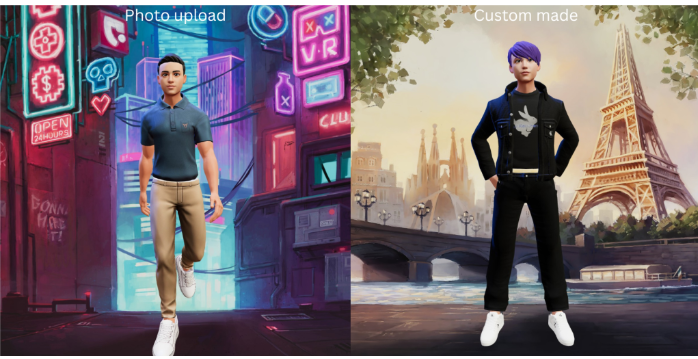To bring the metaverse to life, Mayor Buddy Dyer announced the opening of 2,500 new jobs in Orlando. Over the years, Orlando has become a leading hub for tech companies that want to innovate and explore the capabilities of emerging technologies.
Orlando as a Growing Hub for Tech Talent
“The density of talent, investment, industry, and creativity in Orlando has made the city ground zero for metaverse development, making Orlando the MetaCenter,” shared David Adelson, Orlando Economic Partnership Chief Innovation Officer.
Adelson explained that the initiative to transform Orlando into the MetaCenter stemmed from decades of innovation, which started with increased activity around the Cape Canaveral rocket launch site in 1957. This was further supported by the founding of the University of Central Florida (UCF) to create a workforce capable of supporting the US space program.
“Orlando then became the epicenter of experiential entertainment when Walt Disney came to town. This collision of creative entertainment and technological advancements formed the foundation of the innovative ecosystem that exists here today,” he adds.
Since 2015, Orlando has seen a 46% growth in the number of tech companies in the area, with over 1,600 companies now calling it home. The city also houses tech centers such as Lake Nona and the Creative Village, as well as tech talent from educational institutions like UCF and Full Sail University.
Mayor Buddy Dyer Opens 2,500 Jobs to Build the Metaverse
On December 7, 2022, Mayor Dyer gave his annual State of Downtown Address both in person and in the metaverse, making him the first person to give a mayoral address in the digital space. During his 2022 address, Mayor Dyer shared his vision for Orlando’s future, proclaiming the city as the metaverse’s MetaCenter.
“Mayor Dyer said that his address was an open invitation for anyone to come to Orlando and apply for these positions. We are echoing that call,” said Adelson.
These job opportunities, which include in-demand roles such as software developers, systems engineers, and metwork architects, will help build the metaverse and solidify Orlando’s position as one of the nation’s fastest-growing hubs for tech talent and technological innovation.
Several organizations like the Orlando Economic Partnership, the VR/AR Association (Florida Chapter), and the Orlando Tech Community are some of the champions bringing the metaverse to life in the MetaCenter.
“The list of execs from our next-gen gaming, entertainment, AI, AR/VR, IoT, and simulation training companies joining this effort continues to grow,” Adelson told us. Local governments in Orlando and Orange County have also expressed their support.
Orlando Leveraging the Capabilities of a Digital Twin
To encourage more tech investments in Orlando, the city has been using a digital twin of the entire region to show investors and other stakeholders what the city has to offer. Available at the marketing center in downtown Orlando, users can access immersive experiences via an experience-based platform to explore the region in a more convenient way.
During the recent Unity Fireside Chat, Laureen Martinez, Orlando Economic Partnership Vice President of Marketing and Communications, shared that the digital twin has provided an imaginative and convenient way to showcase the city to guests. It also helps position the city as more than just a tourist destination.
“Our vision is to have more and more companies come to Orlando for us to be able to change their perceptions, just simply through the act of them coming and experiencing this and learning more about Orlando – things that they probably could have never imagined,” Martinez said.
Building the Metaverse in Orlando
Many businesses in the city are developing their own metaverse products and services.
Disney is working with local companies to develop AR/VR technology. Red 6 is using AR headsets to enhance training for pilots. BrandXR is also building AR experiences for some of the world’s biggest brands and institutions, including NASA and Microsoft.
“With buy-in and collaboration from private partners, educational institutions, and the public sector, we have good reason to be so optimistic about the MetaCenter. With these partners, we will continue to illuminate the benefits of the MetaCenter on a global scale,” said Adelson.
Orlando and its MetaCenter champions are working to position the city as the ideal destination for innovative businesses to scale and succeed. They’re determined to attract companies and individuals who share the same vision in building the metaverse.
“We work to attract the companies and people that are looking to build the metaverse and do everything we can to facilitate their growth; our ecosystem of companies in gaming, AR/VR, AI, 3D reconstruction, IoT, and modeling and simulation is unparalleled,” Adelson added.
Future Plans for the City’s MetaCenter
What can the world expect from Orlando’s MetaCenter?
Orlando is gearing up to reinvent its downtown area, with the goal of advancing “Broad-based Prosperity®” for the region.
“We define this as creating a region whose residents live a meaningful life in a place where equal access to resources and pathways to success allows opportunities for all,” explained Adelson. Partnerships between the local government, higher education institutions, and the local industry helped launch the Creative Village, a 68-acre innovation district. It’s home to UCF, the Electronic Arts HQ, Valencia College, and affordable housing and establishments.
David Adelson shared more insights on what the future holds for the metaverse’s development.
“We expect to use our digital twin technology for more than just virtual tours to attract businesses to the area. With this technology, we will be able to preview how different investments, like a transit system upgrade, might affect the environment and its residents,” he told us. “This is a tool that can allow us to run simulations of new policies or infrastructure projects and preview their potential impacts before planning in the real world.”
Article originally appearing on arpost.co by Gergana Mileva







